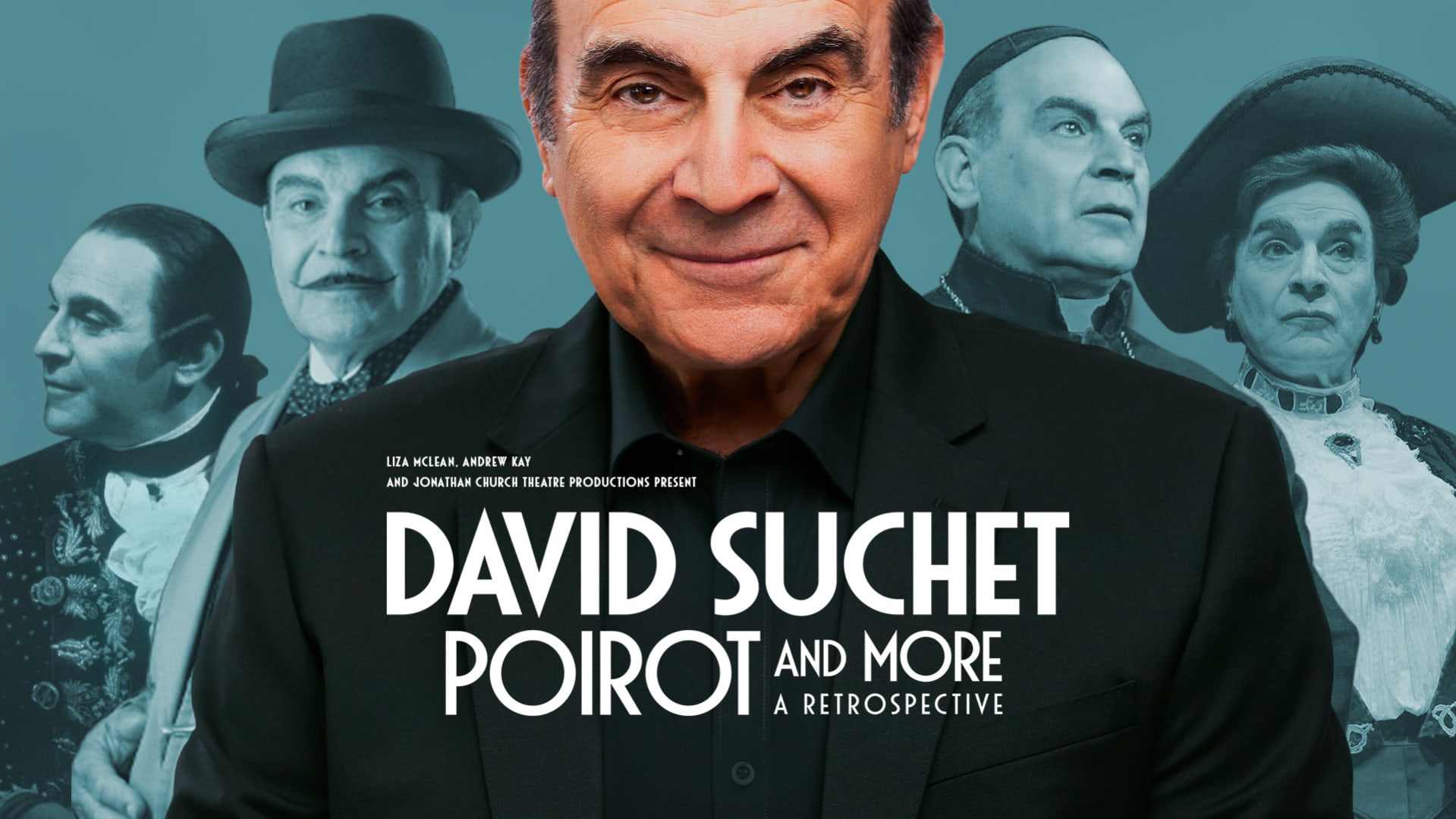David Suchet has been taking this retrospective show around the country for one-night visits ahead of a short London residency at the Harold Pinter for three weeks from 4th January 2022. It is a delightfully simple idea, a combination of a gentle chat about his career with his long-time friend journalist Geoffery Wansell combined with an extraordinarily insightful Master class on delivering Shakespeare words as he meant them to be said and how he created the character of Hercule Poirot. However, as he cheerfully and gratefully acknowledges it is his fame in the long-running TV film series about Agatha Christie’s Belgium detective that attracts his audience rather than his thirteen-year stint at the Royal Shakespeare Company.
Although I am sure largely scripted the chat between Wansell and Suchet which takes up most of the first half is charmingly delivered, showing their friendship but allowing Suchet to tell his stories like a practiced professional! We hear about his school days, his time with the National Youth Theatre and at LAMDA and those first performances on stage. They all too briefly discuss his family background and his Grandmother who performed the sand dance on the Empire Music Hall circuit. It would have been good to hear a little more or seen more photos of his early days.
His break came when he suddenly got promoted from acting stage manager in repertory due to a fellow actor’s injury and became a fully-fledged actor. They touch all too briefly on his performance as Blott in Blott on the Landscape on TV in 1985, his appearance as Inspector Japp in Thirteen to dinner and as Lady Bracknell on stage in Importance of Being Ernest. We hear a little more about playing Saleri in the revival in 1999 of Amadeus. A few well-chosen clips of some of these performances would have been a good addition . We learn that he would like to play Napoleon Bonaparte . More telling he is asked what makes a good director and he tells us one who directs not dictates and we begin to get an insight into how he thinks and prepares as an actor for a part. The need for guidance and encouragement from the Director to allow him to fail in rehearsal as he explores the character he is playing and tries to interpret from the author's words what the writer intended.
In the second half, the show takes off as he leaves his comfy chair and explains his Shakespeare Highway Code, the method of using the text to understand and explore what the author intended. His explanations of Iambic Pentameter, alliteration within the lines and Onomatopoeia (when word imitates the sound it describes) illustrated with speeches from many of his famous plays was quite extraordinary . You began not only to understand his method of leaning in on a character in rehearsal but also his skill as a performer and a better understanding of the cleverness of the text. He describes the role of the actor is to serve the writer and find the right voice for the character as intended by the author . It was enthralling and fascinating to listen to.
Then finally we come to what we all came to see as he transforms himself into Poirot describing the moustache, the walk with the special cane and most of all the voice he adopted and why. It is a brilliant exposition and before your eyes he transformed himself from a well-bred emotional Englishman into central Belgian detective. His 13 series and 70 episodes of Poirot were produced between 1989 and 2013 and are now the definitive performances that attract audience all around the world and will be a lasting legacy from this wonderful actor.
Review by Nick Wayne
Rating: ★★★★
Seat: Stalls, Row L | Price of Ticket: £35.00

